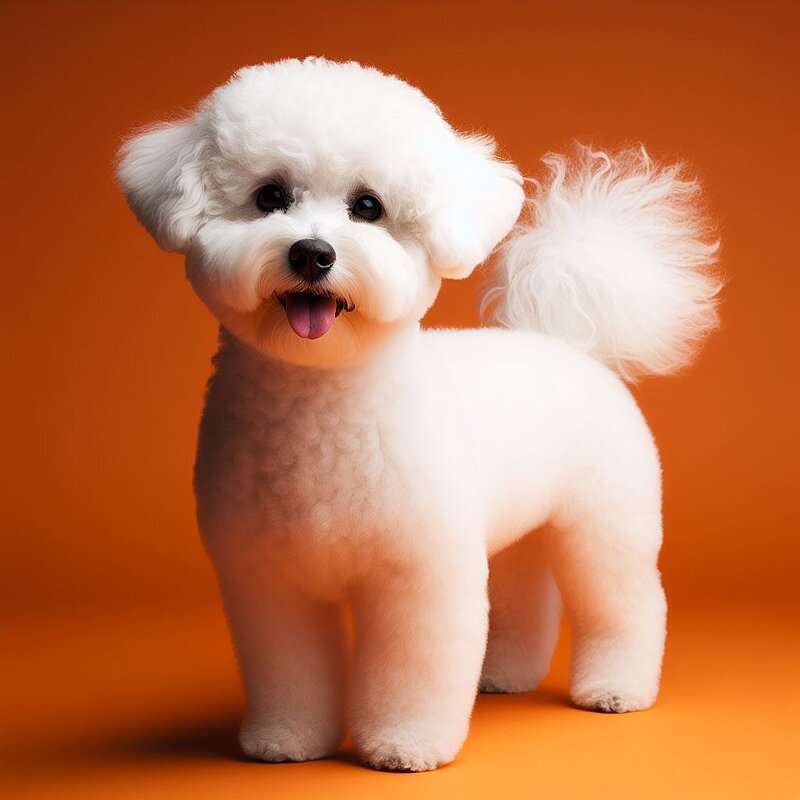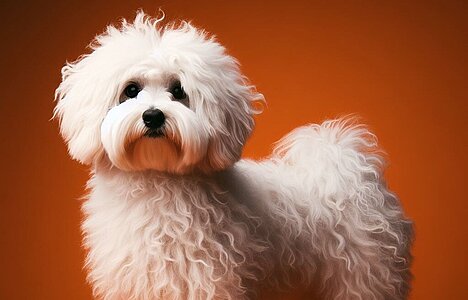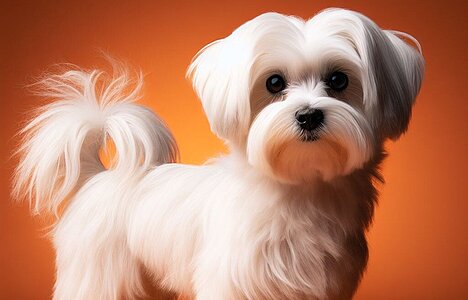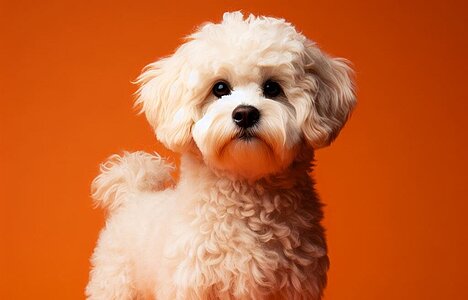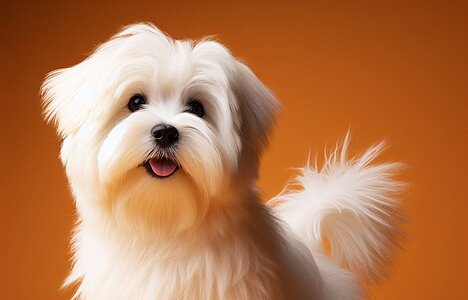The playful Bichon Frisé: A charming companion for young and old
History of the breed
The Bichon Frisé has a long and fascinating history dating back to the Middle Ages. Originally from the Mediterranean region, it was a favorite companion of seafarers. Over the centuries, it found its way to the courts of European nobility, where it was particularly popular with the French and Spanish aristocracy in the 16th century. The name "Bichon" is derived from the French word "bichonner", which means "to spoil". In the 20th century, the Bichon Frisé became popular again thanks to its charming nature and unmistakable appearance and found many fans worldwide.
Who is the Bichon Frisé suitable for?
The Bichon Frisé is an ideal family dog and is perfect for people of all ages. It is particularly suitable for families with children as it is playful, patient and gentle. Seniors also benefit from his company, as he does not require excessive exercise and is very adaptable. His friendly nature also makes him a good companion for first-time dog owners.
Character and behavior
The Bichon Frisé is known for its cheerful and lively character. It is intelligent, eager to learn and loves to be the center of attention. This breed is extremely social and gets along well with other dogs and pets. Bichons are very people-oriented and can suffer from separation anxiety if left alone for too long. Their playfulness and charm make them a constant source of joy.
Appearance of the Bichon Frisé
The Bichon Frisé is a small dog with a shoulder height of around 24 to 29 centimetres and a weight of 5 to 8 kilograms. Its trademark is its soft, curly coat, which shines in a pure white color. The dark, round eyes and black noses contrast nicely with the white coat. Its appearance is reminiscent of a cuddly stuffed animal, which makes it even more popular.
Grooming the Bichon Frisé
Grooming the Bichon Frisé requires a lot of time and attention, especially because of its coat. It needs to be brushed regularly to prevent matting and a professional haircut should be scheduled approximately every four to six weeks. The Bichon Frisé's coat is hypoallergenic, making it a good choice for allergy sufferers. Ears should be checked and cleaned regularly to prevent infections, and dental care is also important as small dog breeds are prone to dental problems.
Health of the Bichon Frisé
The Bichon Frisé is generally a robust and healthy breed with a life expectancy of 12 to 15 years. However, as with all breeds, there are some health issues to watch out for. These include patellar luxation (dislocated kneecaps), dental problems and skin allergies. Regular visits to the vet and a balanced diet will help to keep the Bichon Frisé healthy.
Exercise and training
The Bichon Frisé needs moderate exercise, which makes it suitable for life in the city as well as in the countryside. Daily walks and playtime are enough to keep him happy and healthy. Due to his intelligence and willingness to learn, he is easy to train and is well suited to dog sports such as agility and obedience. Positive reinforcement and patience are the keys to successful training.
Behavior with children and other animals
The Bichon Frisé is known for its loving and friendly nature. It gets on well with children and loves to play with them. Its gentle nature makes it an ideal companion for families. He also gets along well with other pets, provided he is socialized at an early age.
FCI recognition and other interesting facts
The Bichon Frisé is recognized by the Fédération Cynologique Internationale (FCI) and belongs to Group 9: Companion and companion dogs, Section 1.1: Bichons and related breeds. An interesting detail about the Bichon Frisé is that, although it has a luxurious appearance, it originally served as a working dog on ships, where it was responsible for rat control.
